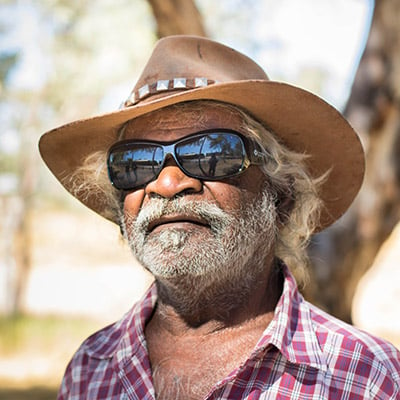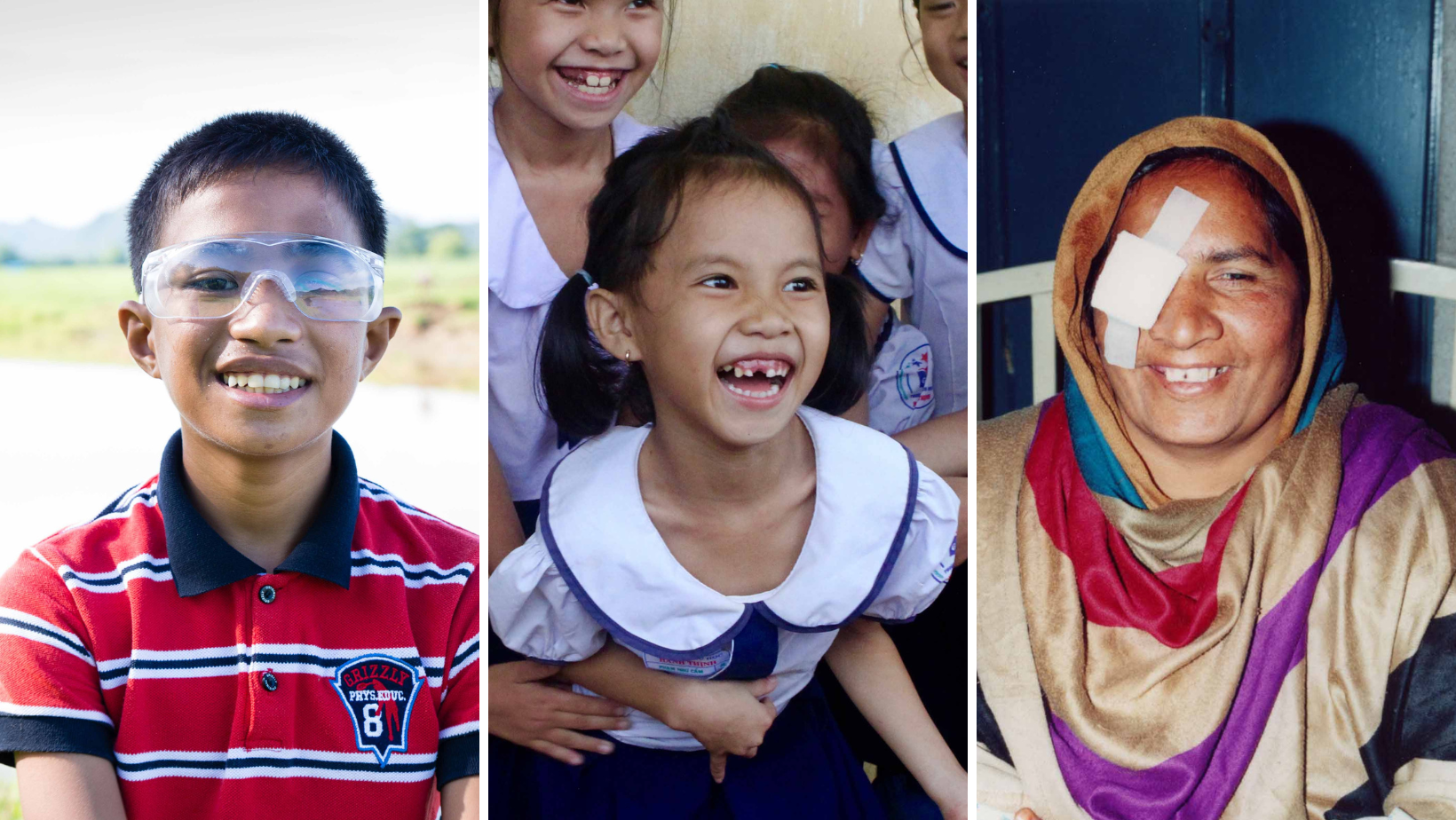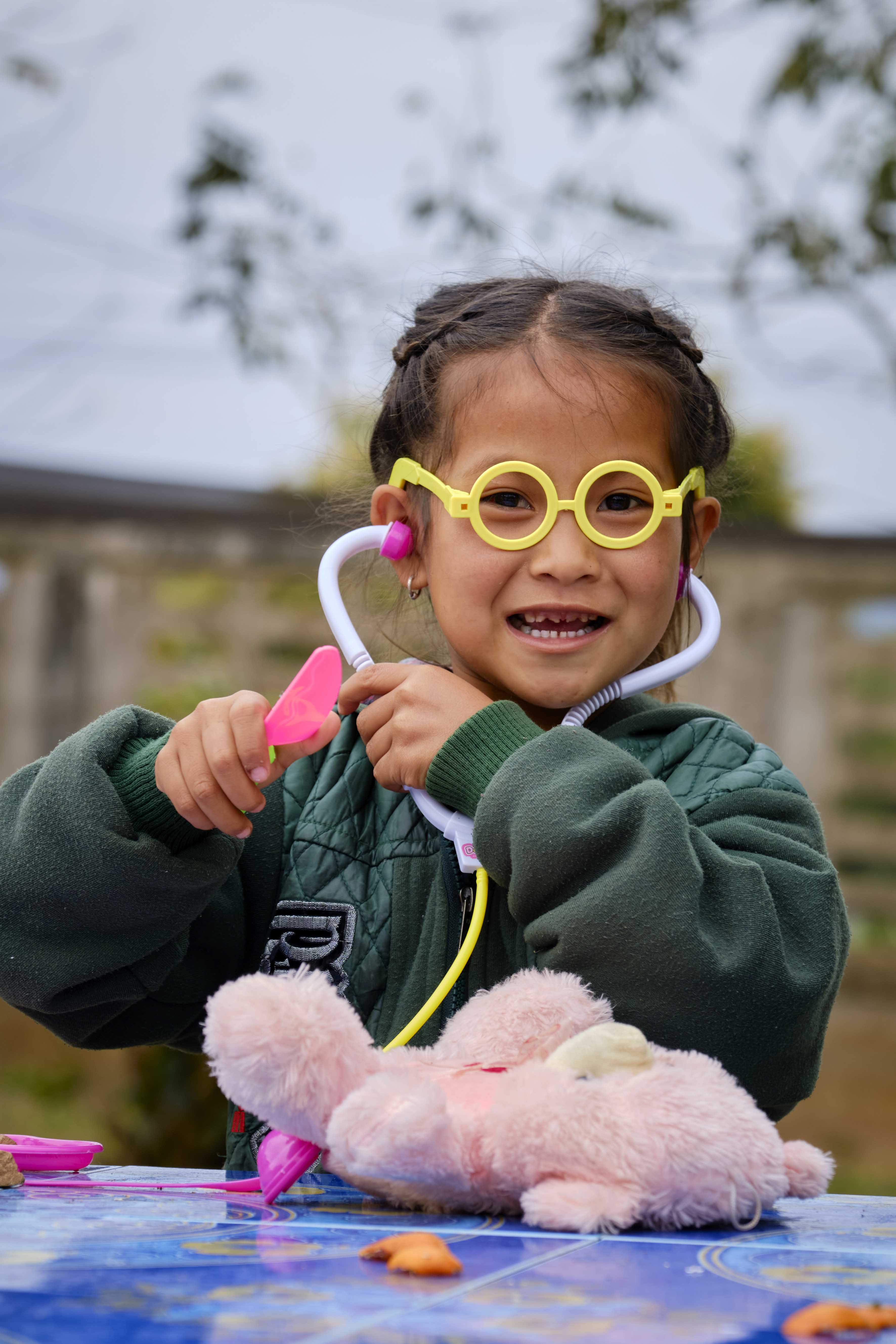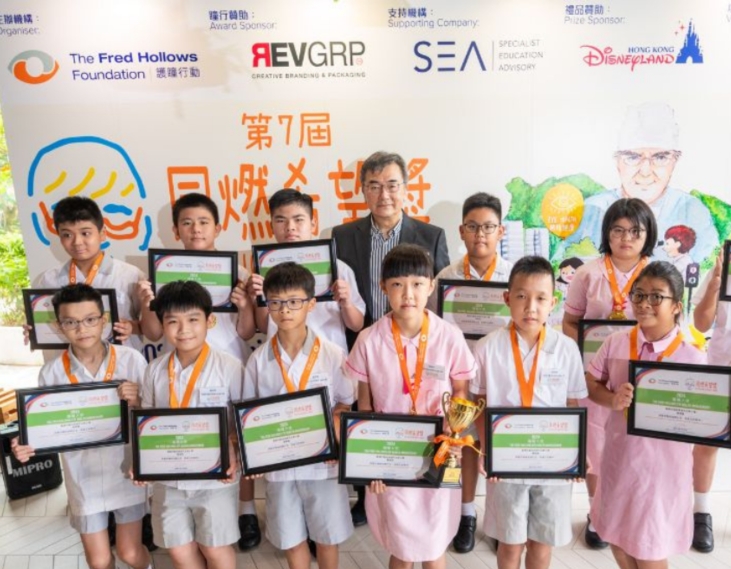We see a world in which no person is needlessly blind or vision impaired. In 2023, our global impact was profound:
4,435,157
People screened.
612,376
Eye operations and treatments performed.
6,866,281
People treated with antibiotics for trachoma.
154,476
Pairs of glasses distributed.
36,804
People trained including community health workers, teachers, and surgeons.
5,899,610
School children and community members educated in eye health and sanitation.
1,951
Medical facilities, training centres and schools built, renovated or equipped.
Ending avoidable blindness
"One of the great joys of my life is having been part of the training of Sanduk Ruit and his training others." - Fred Hollows
The Founder of The Fred Hollows Foundation, Prof. Fred Hollows believed in empowering people. That’s why we invest in training a range of people from community health workers to surgeons. Building local skills has always, and will always, be at the heart of our work.
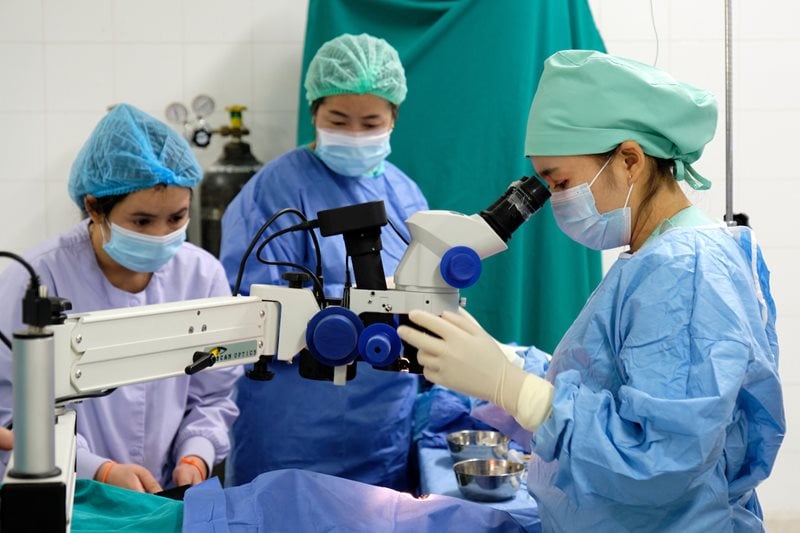
Training
Fred believed that training and empowering local people was the key to sustainable change. The Foundation trains doctors, nurses and health care workers so they can recognise, diagnose, refer and treat eye problems in their communities.
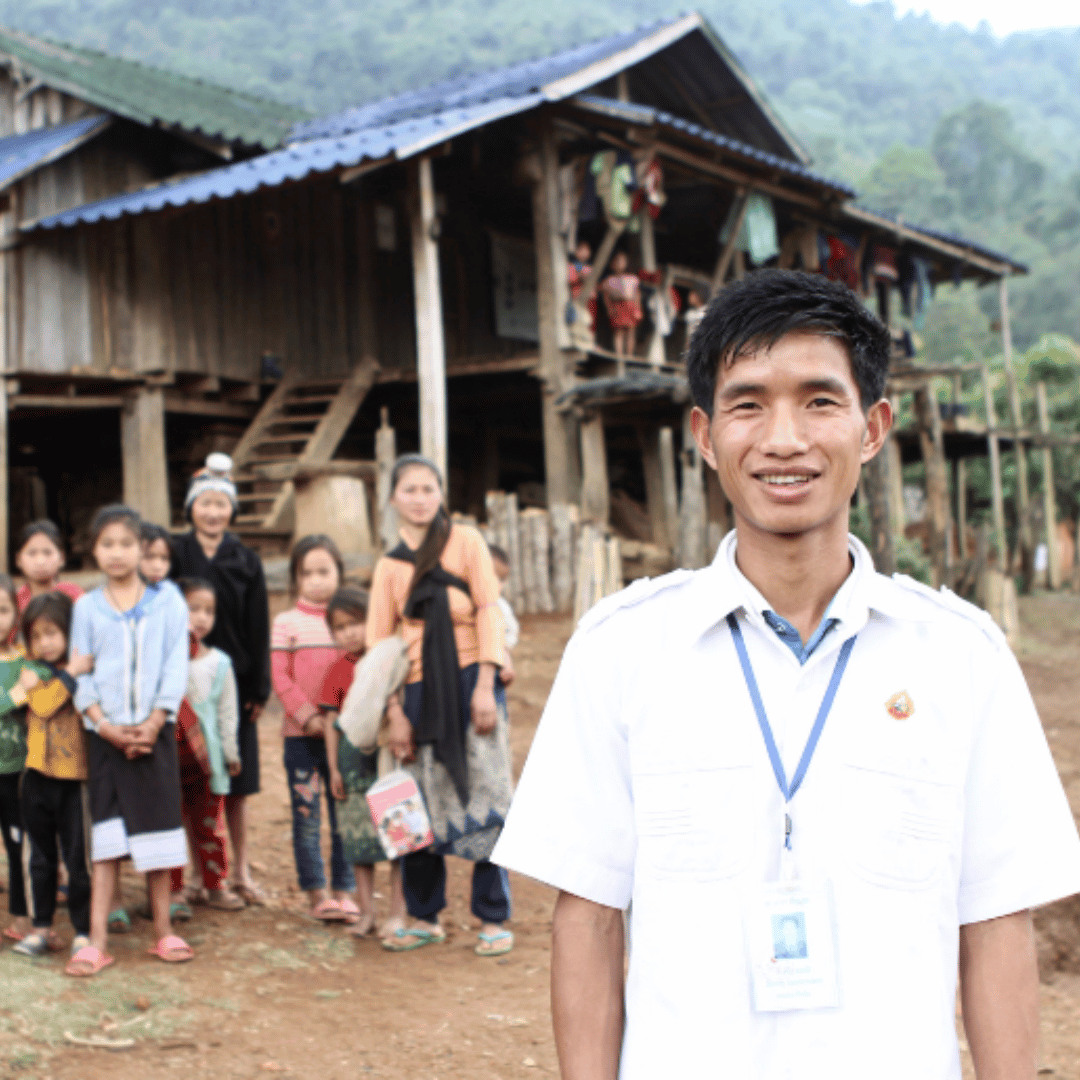
Doorstep diagnosis
Community health workers are a vital link between patients and eye health services. Trained by The Foundation, they visit communities, diagnosing a range of medical conditions and referring people to medical clinics, hospitals and doctors. Performing initial consultations like these is essential, because potentially damaging eye health issues are identified before they become critical.
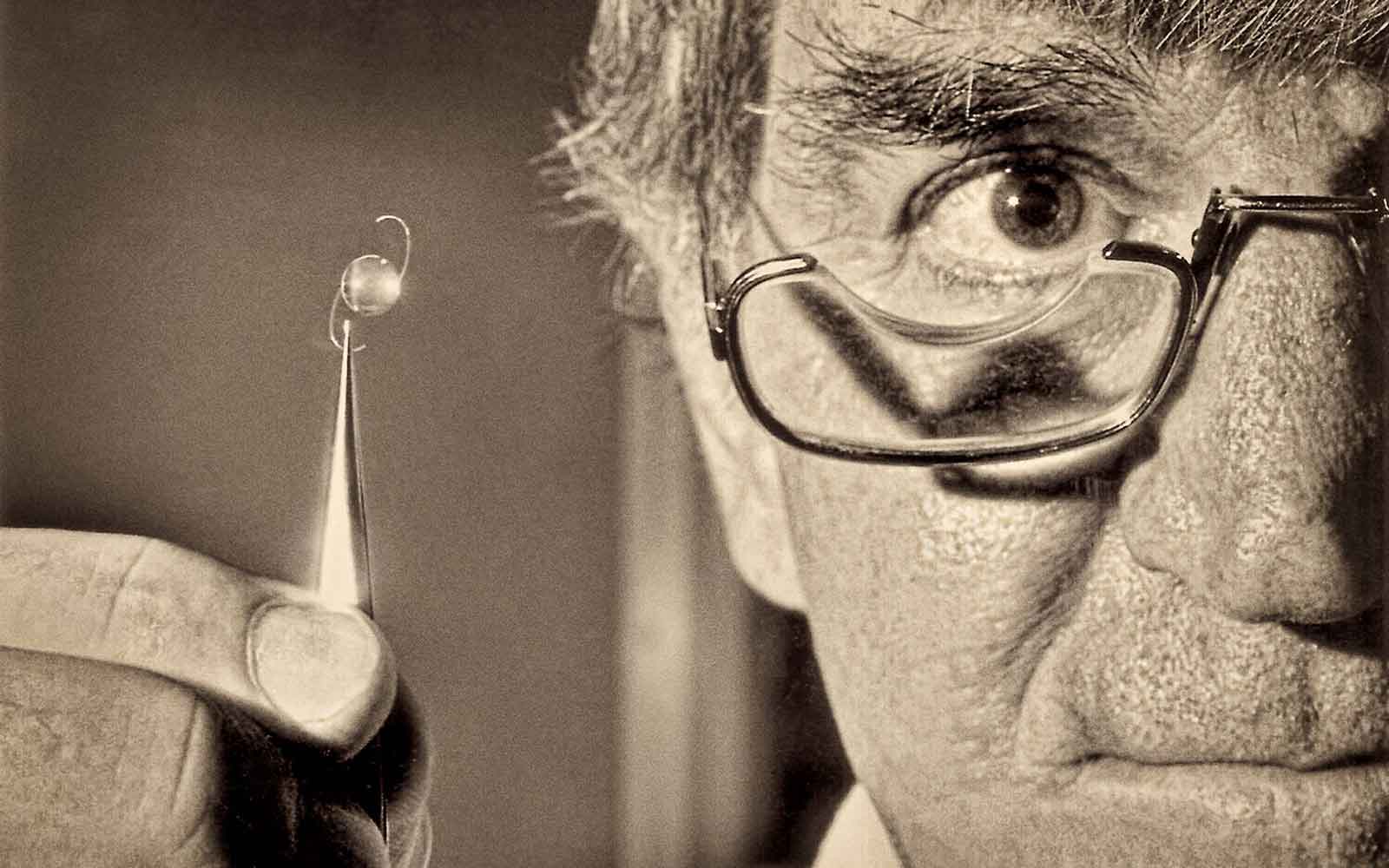
Fred’s passion for teaching
Fred was an advocate of hands on learning. He firmly believed there should always be three people in a room: a teacher, a student and a patient. Whether it was in an operating theatre in Sydney or Hanoi, Fred took great delight in seeing the moment of understanding in his students’ eyes.
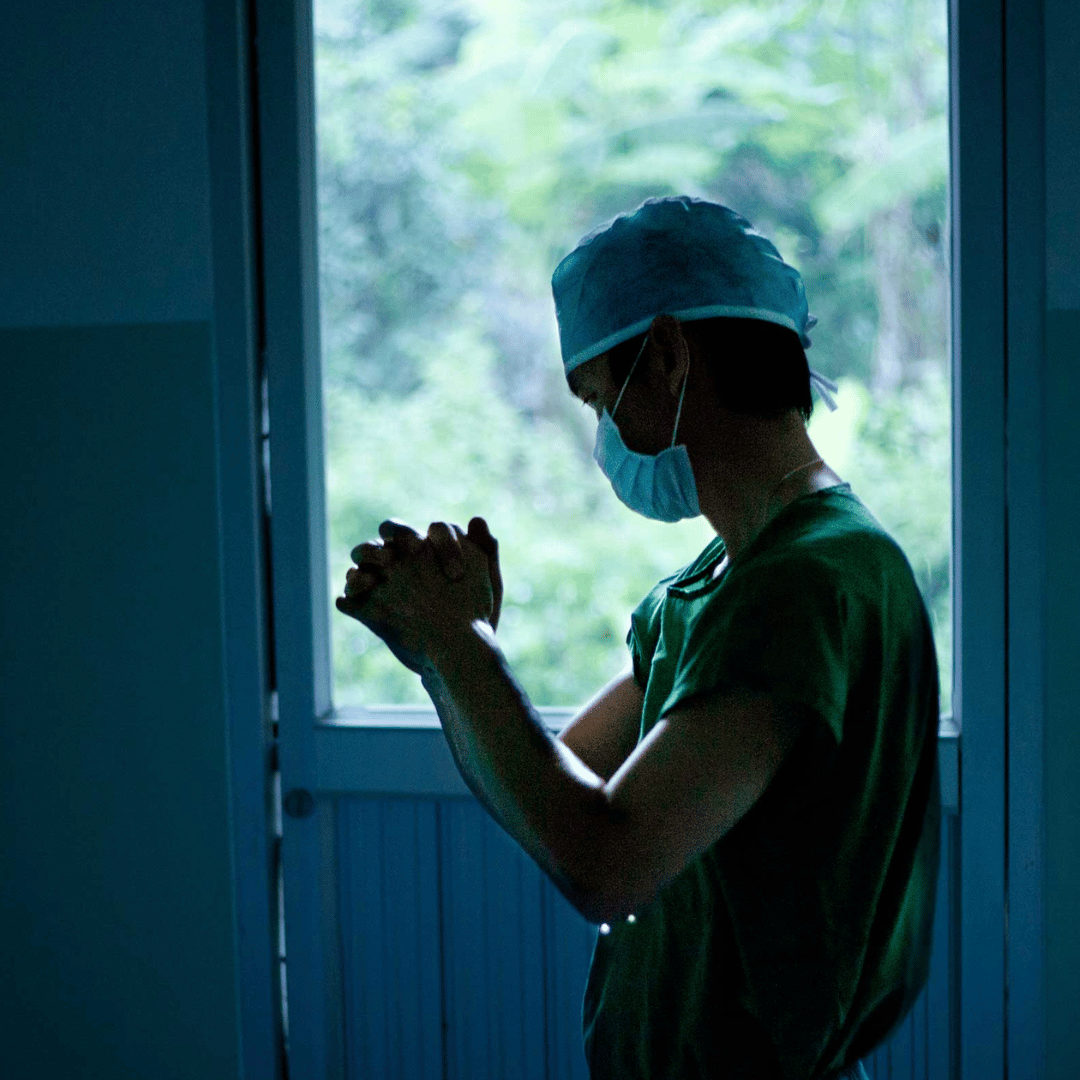
The last lesson
Despite being very ill with cancer, Fred discharged himself from hospital in July 1992 to fly to Hanoi. There he wanted to fulfil his promise to train over 300 Vietnamese eye specialists in modern eye surgery techniques.
